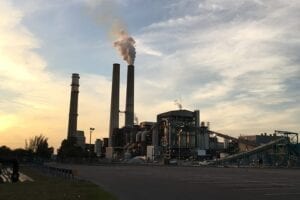At the Federal Energy Regulatory Commission, a recent decision (Order 745) mandates paying electricity customers in "organized markets" (those managed by regional transmission organizations and independent system operators) who reduce consumption in time of need the same price that generators would get for supplying the need. They call it "demand response," or DR. In a recent study, the American Council for an Energy Efficient Economy (which has a vested interest in the topic), proclaims that investing in energy efficiency in Texas can save the state $14 billion a year in utility bills and create 47,000 local jobs a year by 2030.
Increasing energy efficiency appears to be a no-brainer, a way to prove that less is more, reducing carbon emissions at the same time that standards of living rise and the cost of electricity declines. Our energy economy, the efficiency litany proclaims, is abundant with opportunities to save energy at below the cost of producing it. It’s social benefits with no losers. Is this too good to be true?
A debate about the answer to that question has begun, kicked off by a new report from The Breakthrough Institute, a young and iconoclastic California think tank. Economists Jesse Jenkins, Ted Nordhaus, and Michael Shellenberger question the conventional wisdom about energy efficiency in "Energy Emergence: Rebound & Backfire as Emergent Phenomena." They review 96 published journal articles by economists who have looked at energy efficiency—which they claim is "one of the largest reviews of peer-reviewed journal literature to date"—to reach a counterintuitive conclusion: below-cost energy efficiency measures can trigger a "rebound" effect that eats up some of the savings. Energy consumption bounces back, driven by the stimulus of lower costs, eroding much or all of the expected savings.
Understanding this heretical notion begins with the work of William Stanley Jevons, a 19th-century British economist who was interested in the impact of efficiency improvements in steam engines, which conventional wisdom believed would result in the use of less coal. As Jevons discovered, and wrote about in his 1865 book The Coal Question (reprinted by General Books LLC in 2009), the opposite happened. Coal burning rebounded, and England burned more coal after improvements in Mr. Watt’s engine made it use coal more sparingly. In what has become known to the cognoscenti of economics as the "Jevons Paradox," Jevons discovered that efficiency lowered the price of energy, inducing more demand and unlocking new ways to use coal. Demand experienced a dramatic rebound. Rebound led to "backfire," where the new uses consumed more coal than the old.
The Breakthrough report suggests that this can happen today with electric energy efficiency, a conclusion the authors say is consistent with the academic literature they reviewed. In the convoluted language of the trade, the Breakthrough analysts argue that "while the work of theorists ultimately relies on contested economic frameworks and may never prove conclusive, theoretical inquiries into rebound effects consistently indicate that when energy efficiency measures are aggregated over the global scale and multi-decadal timeframes that matter most to climate and energy security objectives, total economy-wide rebound is likely to be quite large, even leading to backfire in certain circumstances."
In a statement accompanying the report, Nordhaus and Shellenberger, who founded the institute in 2003, say, "Below-cost energy efficiency is critical for economic growth and should thus be aggressively pursued by governments and firms. However, it should no longer be considered a direct and easy way to reduce energy consumption or greenhouse gas emissions."
The report has yielded heavy backfire from energy efficiency aficionados. David Goldstein and Ralph Cavanagh of the Natural Resources Defense Council promptly offered a rebuttal. They argue that the notion of rebound for energy efficiency is "bizarre" and "discredited." The two environmental lawyers claim that the performance of the U.S. economy over the past 35 years disproves the Breakthrough hypothesis. They say that "between 1973 and 2009, U.S. economic production more than tripled even as total U.S. energy use increased by less than a third. If ‘rebound effect’ advocates were right, that record would have been flatly impossible, since savings in energy use would be offset by activities that demand energy, keeping energy use trends in lockstep with economic growth (just as they were for the first three decades after World War II)."
The general media has taken up the Jevons Paradox. John Tierney, the veteran science writer for The New York Times, addressed the Breakthrough report on his blog, adding fuel to the rhetorical fire by citing a similar, 2007 study by the UK Energy Research Center, which Nordhaus and Shellenberger also reviewed. Tierney wrote "that a growing number of economists say that the environmental benefits of energy efficiency have been oversold." He pointed to the world’s experience with lighting technology. "As people have switched from candles to oil-powered lamps to incandescent bulbs and beyond," Tierney wrote, "the amount of energy needed to produce a unit of light has plummeted. Yet people have found so many new places to light that today we spend the same proportion of our income on light as our much poorer ancestors did in 1700, according to an analysis published last year in The Journal of Physics by researchers led by Jeff Tsao of Sandia National Laboratories."
Shortly prior to the Breakthrough Institute study, The New Yorker carried an article on the Jevons Paradox by environmental writer David Owen, titled "The Efficiency Dilemma." He wrote, "The problem with efficiency gains is that we inevitably reinvest them in additional consumption. Paving roads reduces rolling friction, thereby boosting miles per gallon, but it also makes distant destinations seem closer, thereby enabling people to live in sprawling, energy-gobbling subdivisions far from where they work and shop."
This promises to be a lively debate, one that should inform, or perhaps confound, policy making and regulation at the federal, state, and local level for some time to come.
—Kennedy Maize is MANAGING POWER’s executive editor.









